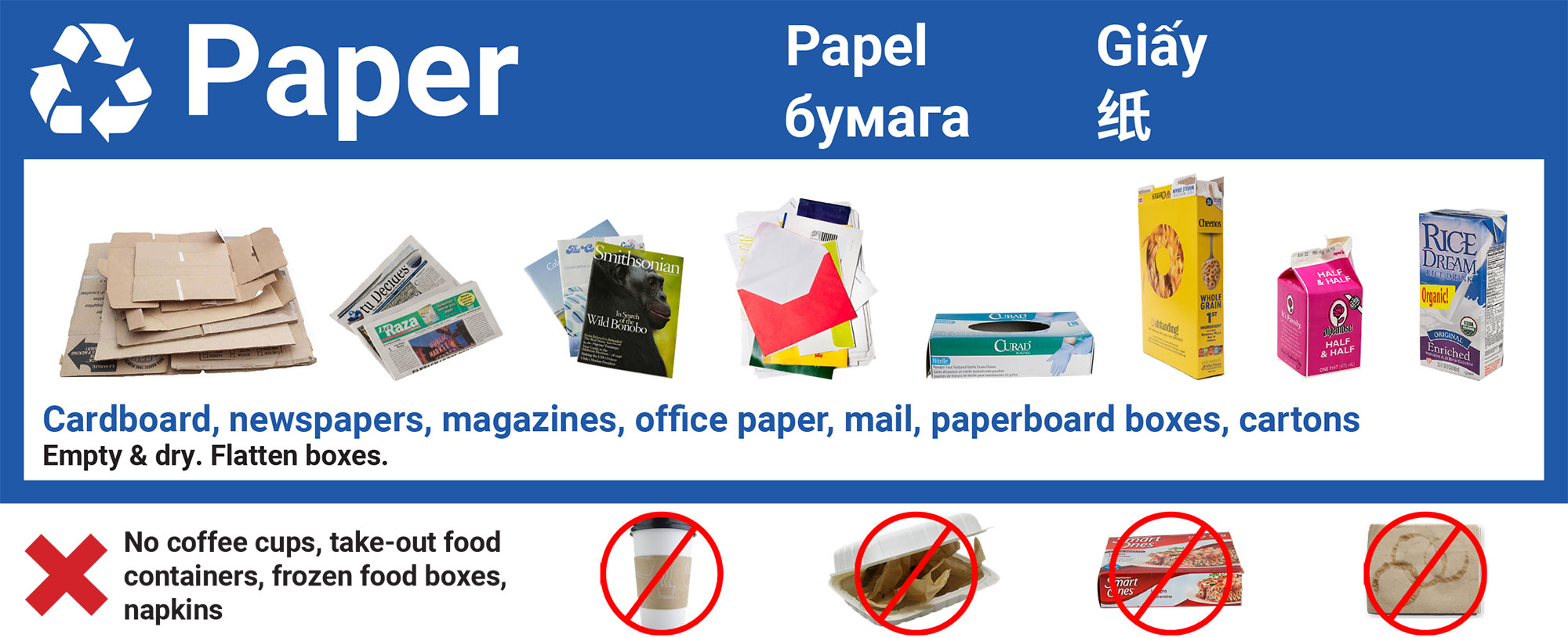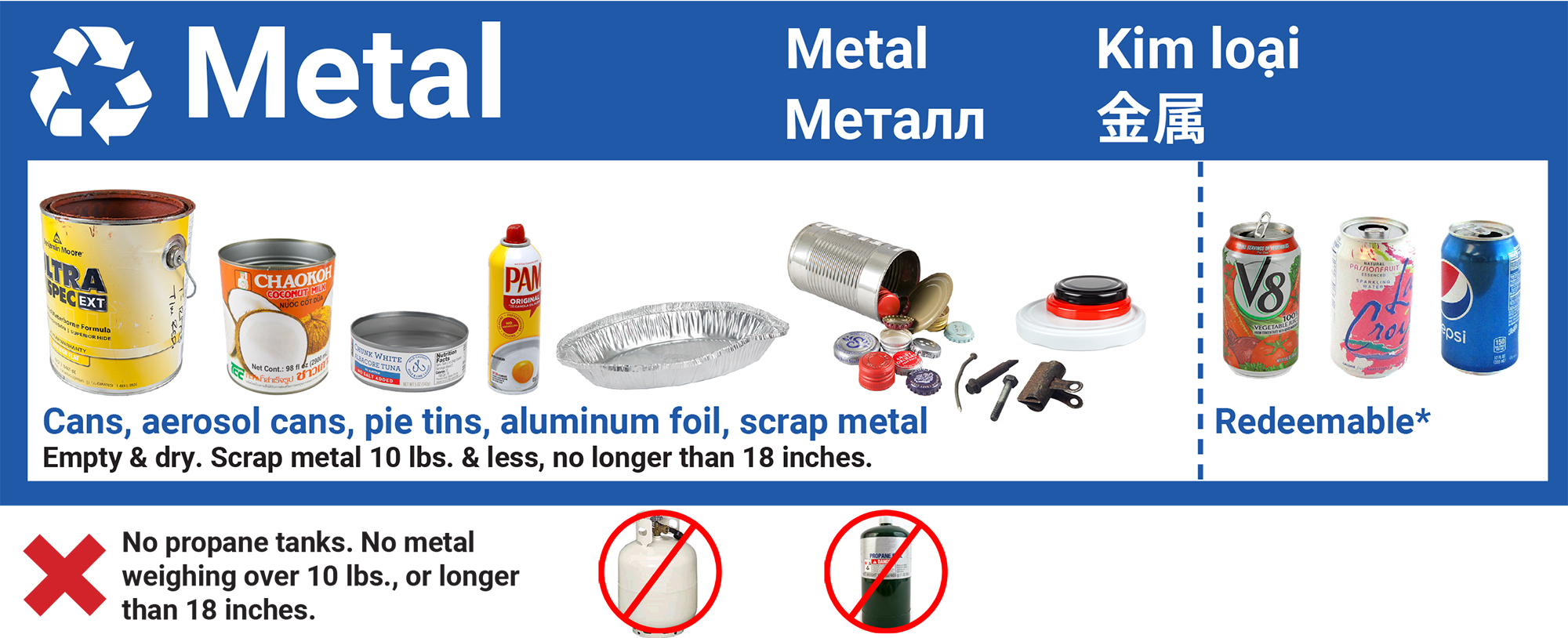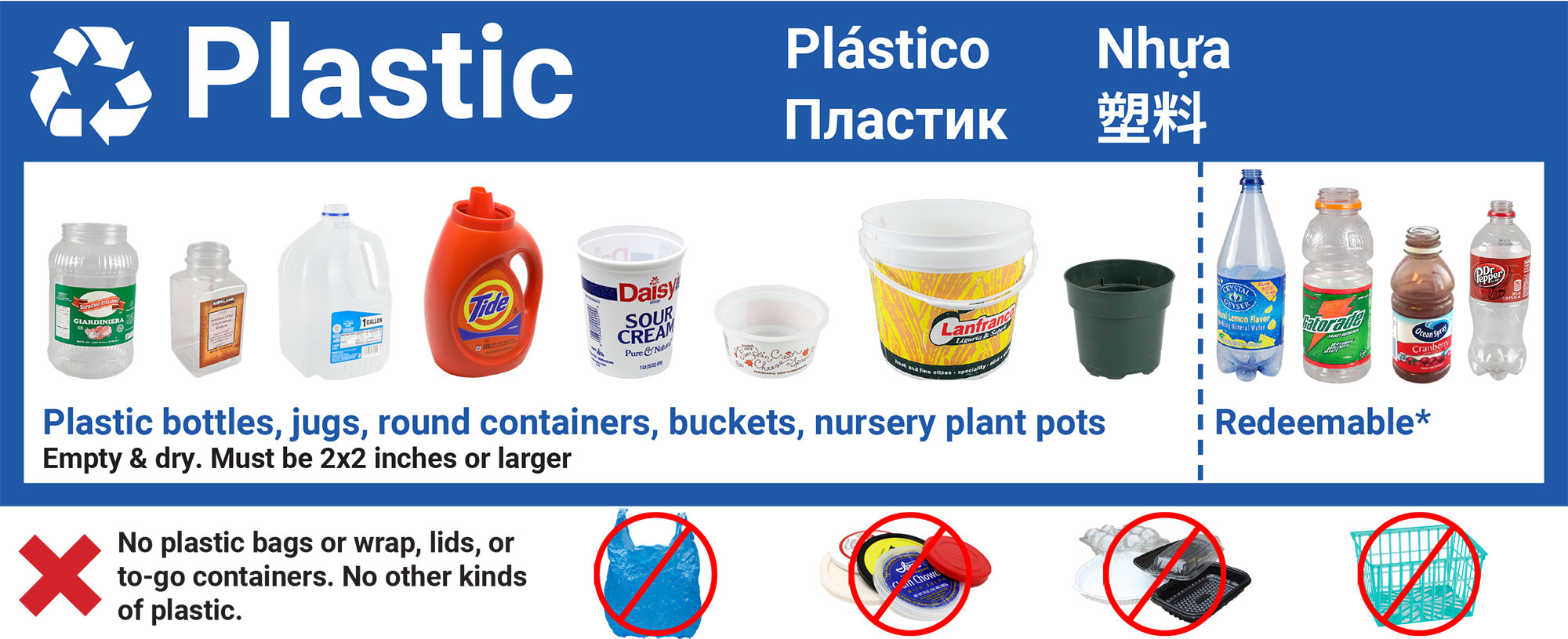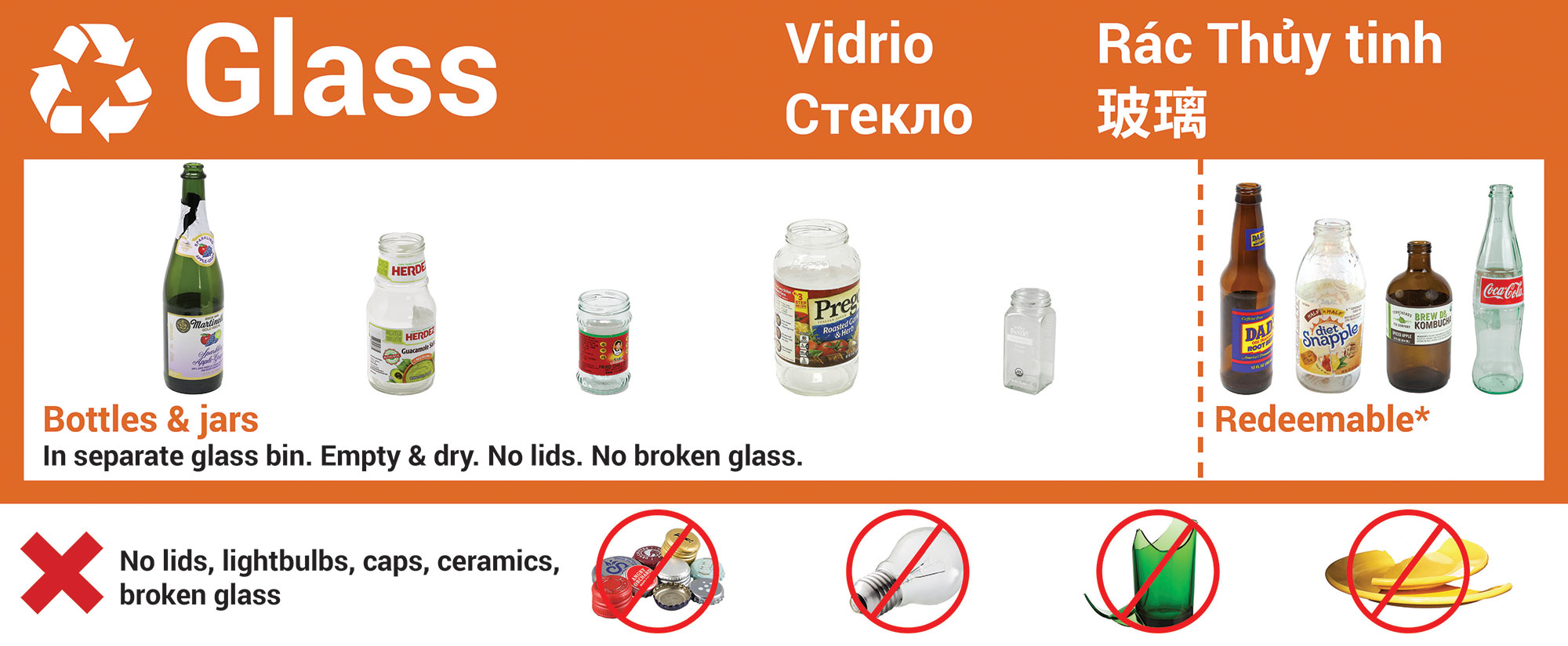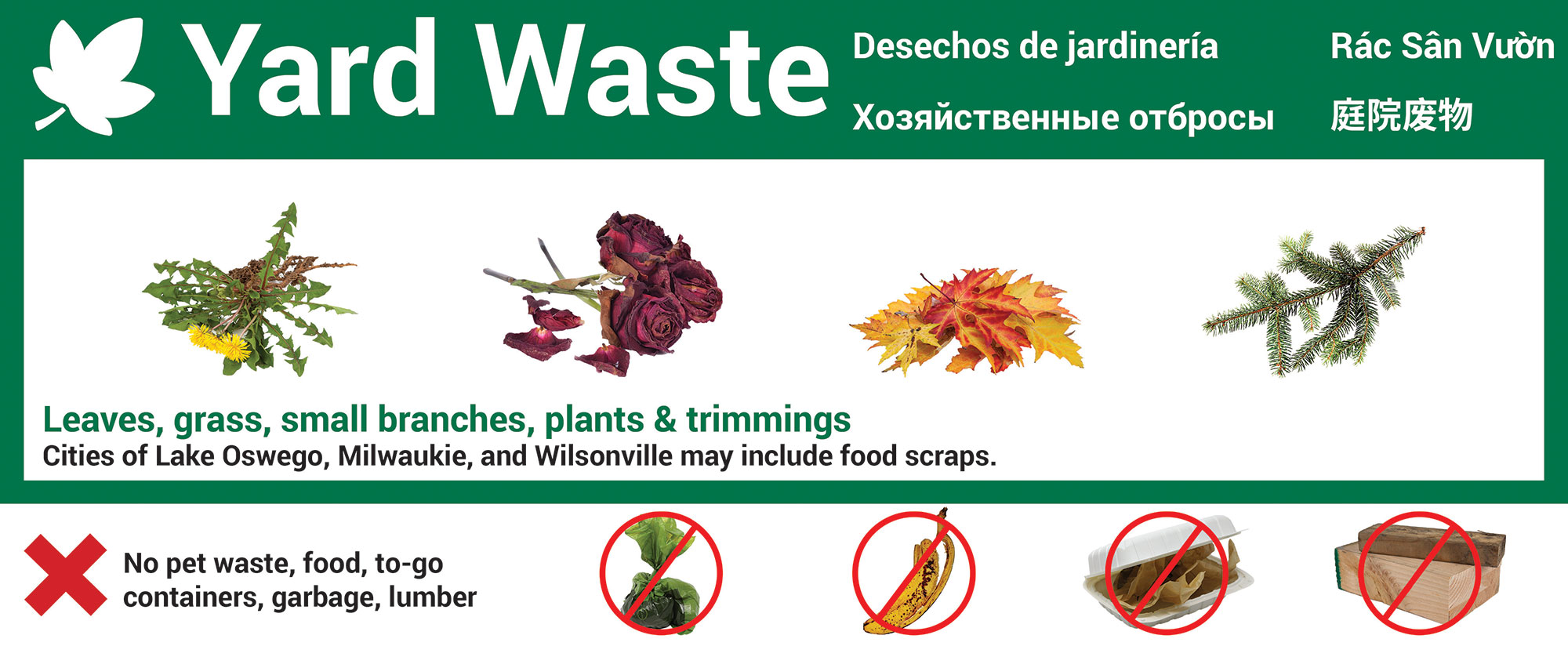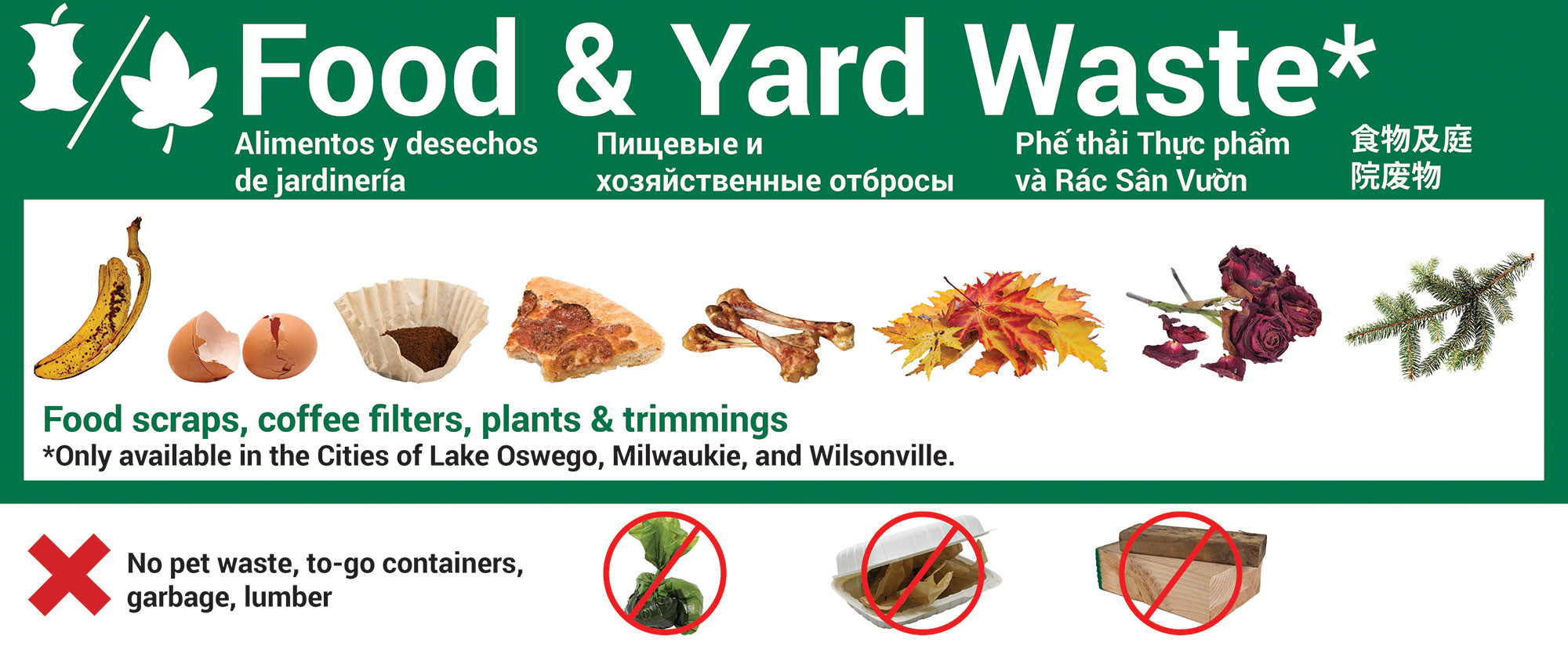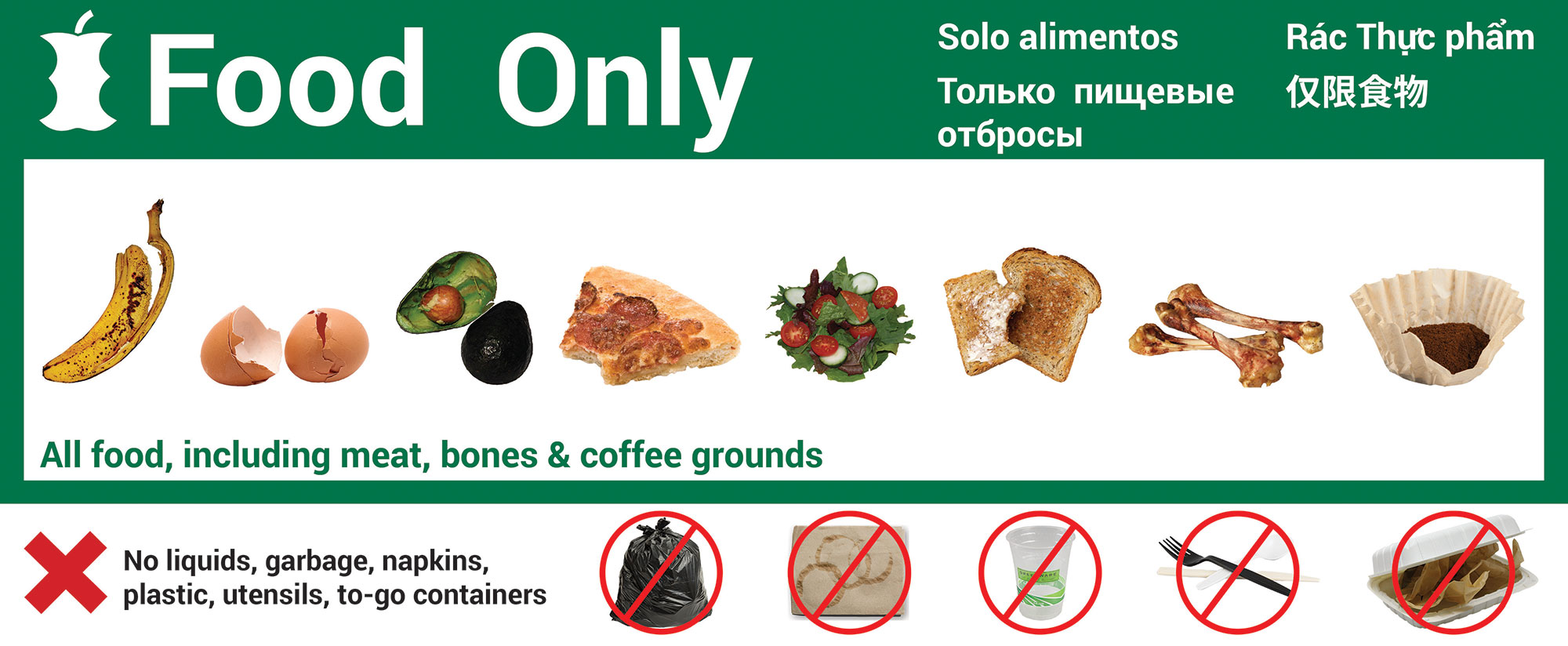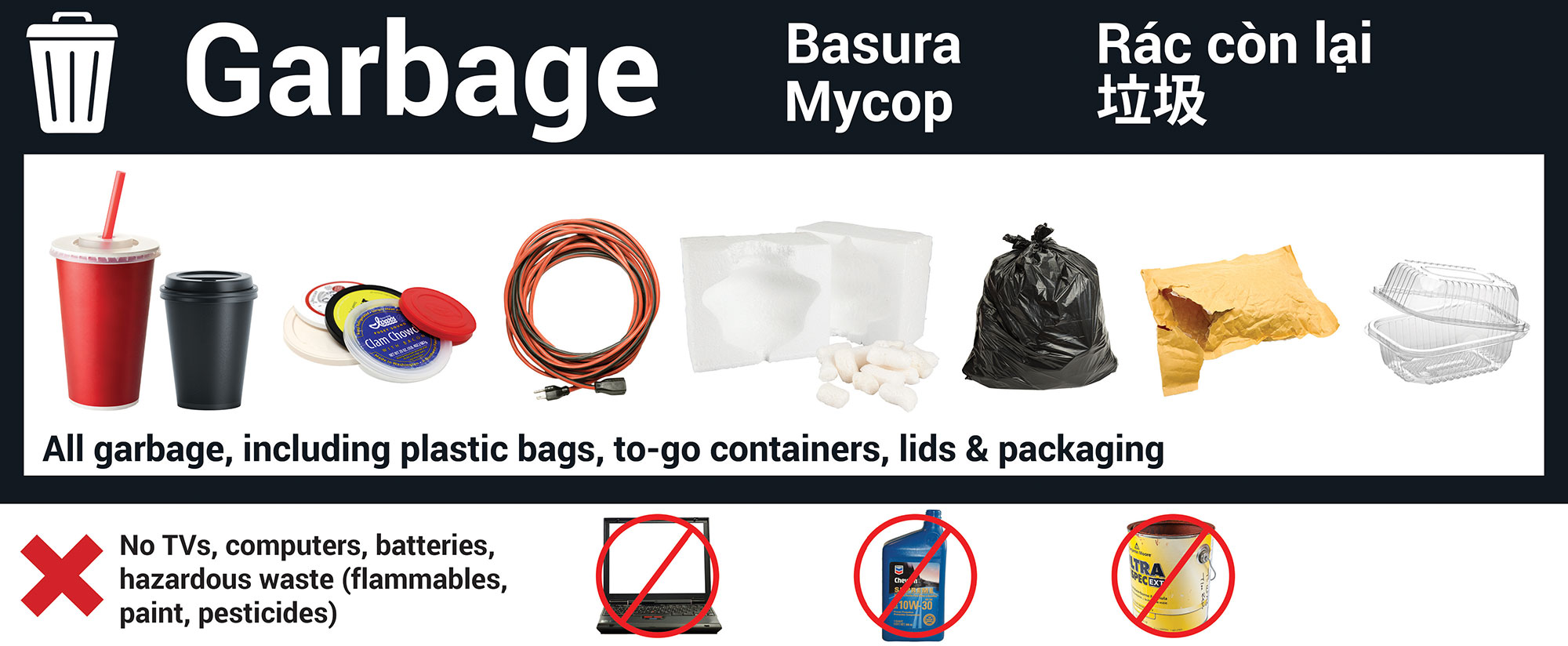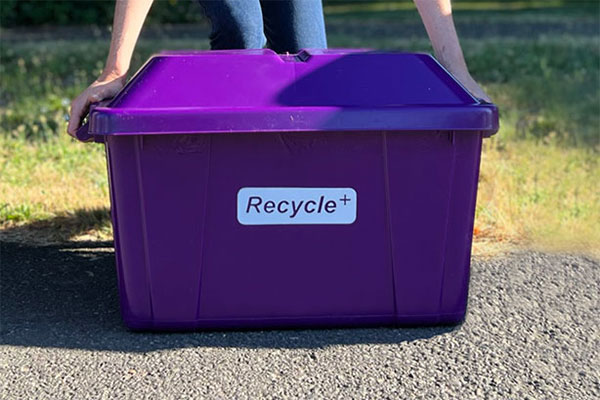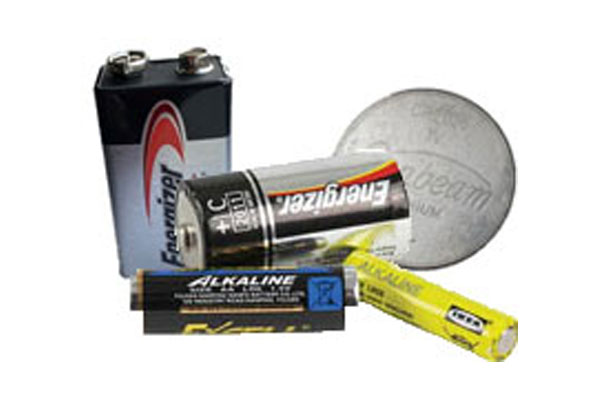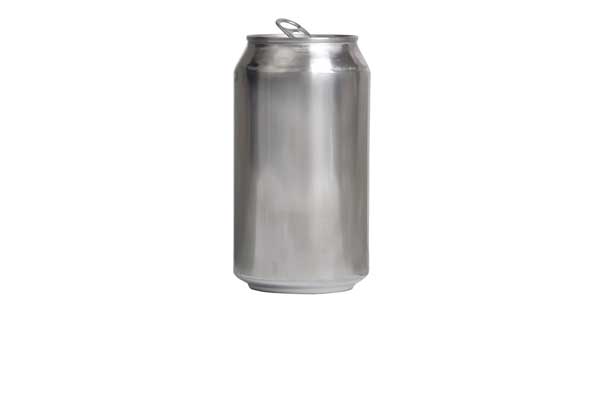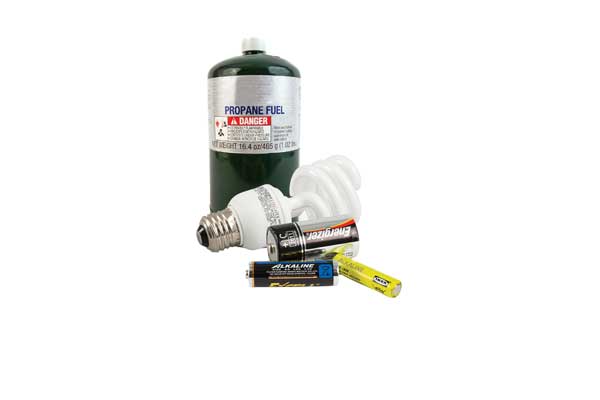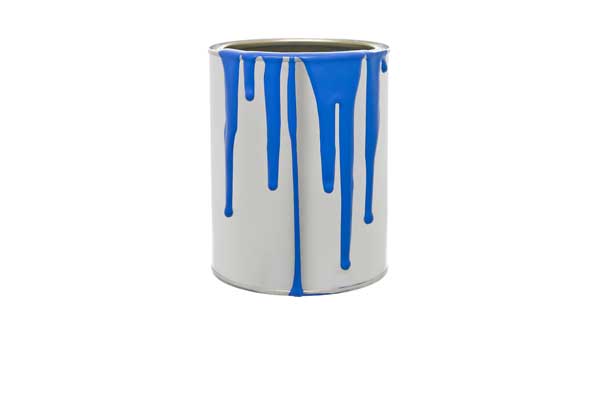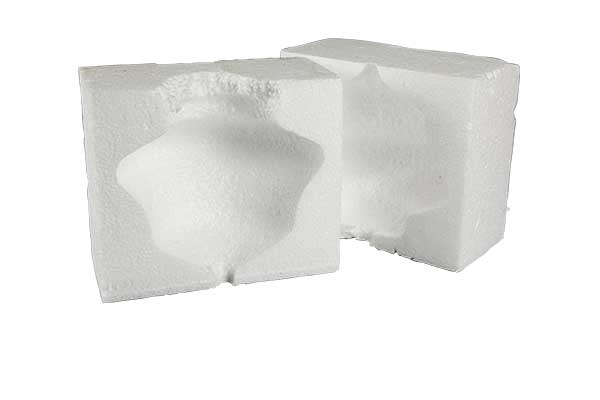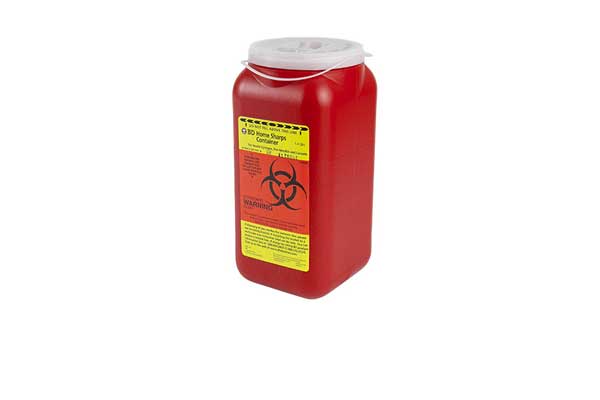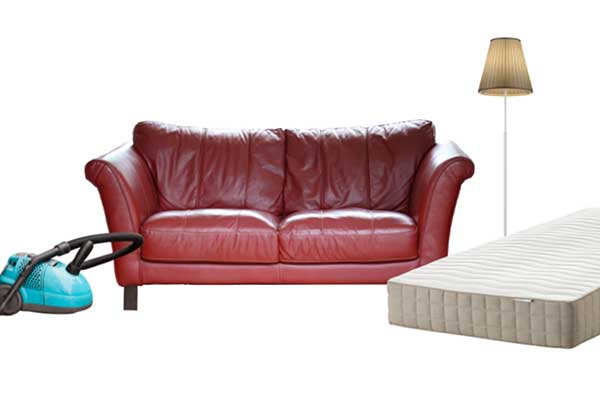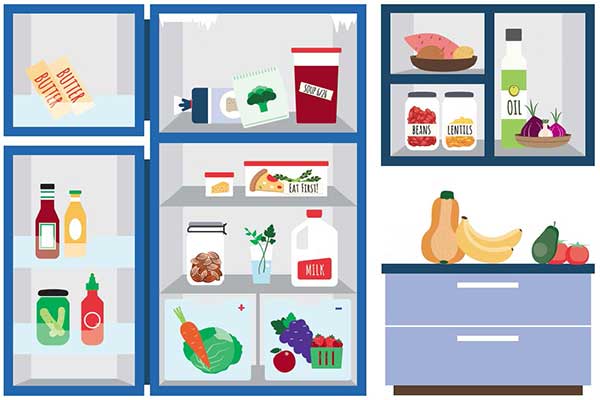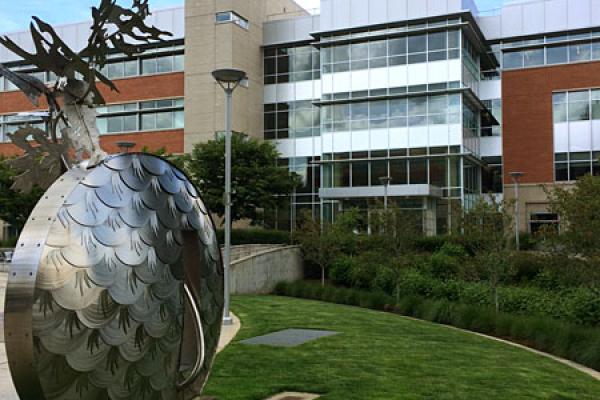Whether you are at home, work, or school, the materials you can recycle are the same. All items should be empty and dry before going into your recycling bin.
Printable Recycle Guides

- ClackCo Recycle Guide
- Guía de Reciclaje de ClackCo (Spanish)
- Руководство по переработке отходов в округе Клакамас (Russian)
- Hướng Dẫn Tái Chế ClackCo (Vietnamese)
- ClackCo 回收指引 (Simplified Chinese)
- ClackCo 재활용 가이드 (Korean)
- คมู่ อื รไี ซเคลิ แคลกโค (ClackCo Recycle Guide) (Thai)

- ClackCo Recycle Guide
- Guía de Reciclaje de ClackCo (Spanish)
- Руководство по переработке отходов в округе Клакамас (Russian)
- Hướng Dẫn Tái Chế ClackCo (Vietnamese)
- ClackCo 回收指引 (Simplified Chinese)
- ClackCo 재활용 가이드 (Korean)
- คมู่ อื รไี ซเคลิ แคลกโค (ClackCo Recycle Guide) (Thai)
Businesses: Print or request workplace recycling tools
What Can I Recycle?
Other Reuse, Recycling & Disposal Options
An optional, add-on service to recycle even more.
Learn how to safely dispose of household batteries in Clackamas County.
Return containers with a 10-cent redeemable deposit to BottleDrop Centers, retailers or grocery stores.
Take up to seven qualifying items at a time to an Oregon E-Cycles collection site for free recycling.
Learn where to safely dispose of common household hazardous waste.
PaintCare makes it easy to recycle leftover paint, primers, stains, sealers and more for no fee.
The only local option for polystyrene plastics recycling (for a fee) is Green Century Recycling in NW Portland. .
Learn more about plastic film, including which types you can recycle and where to recycle them for free.
Safely dispose of unwanted medications at a drug take-back box.
Learn the Oregon laws about containment and disposal of medical sharps.
Look up how to dispose of an item or call 503-234-3000.
Buy, sell, and donate good-condition items.
Tips and tricks for your household to save money and prevent wasted food.
Why Can’t I Recycle This?
Still Have Questions?
Find a Recycler: Look up easy options to recycle, donate or reuse anything from batteries and packing peanuts to that old dishwasher.
Metro Recycling Information Center: Call for your garbage and recycling questions at 503-234-3000.
Instagram: You can also direct message pictures of questionable items to @recycleornot (@ReciclarONo en español) on Instagram.
Play the game: Test your recycling knowledge with this interactive game. (Juegue ReciclarONo)
 Translate
Translate






